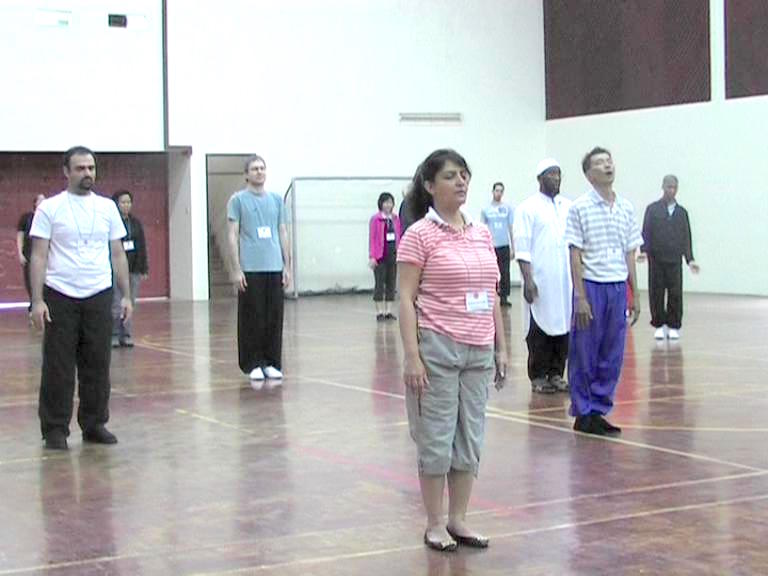THE THREE GOLDEN RULES OF PRACTICE

Don't Worry; Don't Intellectualize; and Enjoy the Practice
Question
I spoke to Sifu Anthony and he reminded me to follow the golden rules. Now I try my best not to worry when these sensations happen, as Sifu said they would come and go.
— Ausar, USA
Answer
The three golden rules of practice are very helpful, and are as follows:
- Don't Worry.
- Don't Intellectualize.
- Enjoy Your Practice
Other people may be surprised at the rules. They probably expect rules like ensuring forms are correct, practicing at specific times of the day or facing certain directions. All these restrictions or specifications are swept away with the first golden rules of "Don't worry"! It is almost a joke.
The three golden rules are not thought out from imagination. They are crystallized from my observations of students' facing problems and helping them overcome the problems over many years.
The main reason why the majority of our students faced problems was that they worried unnecessarily. When checked, I found that their techniques were correct. But their unnecessary worry, like what exercise was best for their purpose or how they could get the best benefit, resulted in them having negative result which negated the positive result of their correct practice.
Another major reason was they intellectualized, like wondering why chi flowed in a certain way or whether it was cosmic chi or their own chi that was working in them. Again their techniques were correct, but their intellectualization negated any benefit they could have.
In high-level chi kung like ours, the mind is most important. Worrying and intellectualization stress the mind, resulting in negative effects even when the techniques are correct.
There are three components in chi kung, namely form, energy flow and mind, or "jing", "qi" and "shen" in Chinese. In high level-chi kung, the proportion of effect, both good and bad, are respectively 1, 3 and 6. So even when a practitioner performs perfect form and perfect breathing, but he worries and intellectualizes, he ends up with minus 2 every time he practices. He gains 1 unit of benefit from form, 3 units of benefit from energy flow, but loses 6 units of benefit from mind, resulting in an adverse effect of 2 units.
Suppose he does not worry and does not intellectualize, but does badly in form and energy flow, he still gains some benefit. He gets 0 for form, 0 for energy flow, but depending on how well he maintains his chi kung state of mind, he still gains 1 or 2 or 3 units of benefit.
Another reason why some students do not get benefit form our chi kung was that they did not practice, or merely practiced mechanically. Hence, the third golden rule is to enjoy your practice. Of course, you have to practice to enjoy it.
The above is taken from Question 7 March 2014 Part 3 of the Selection of Questions and Answers.
LINKS
Courses and Classes
